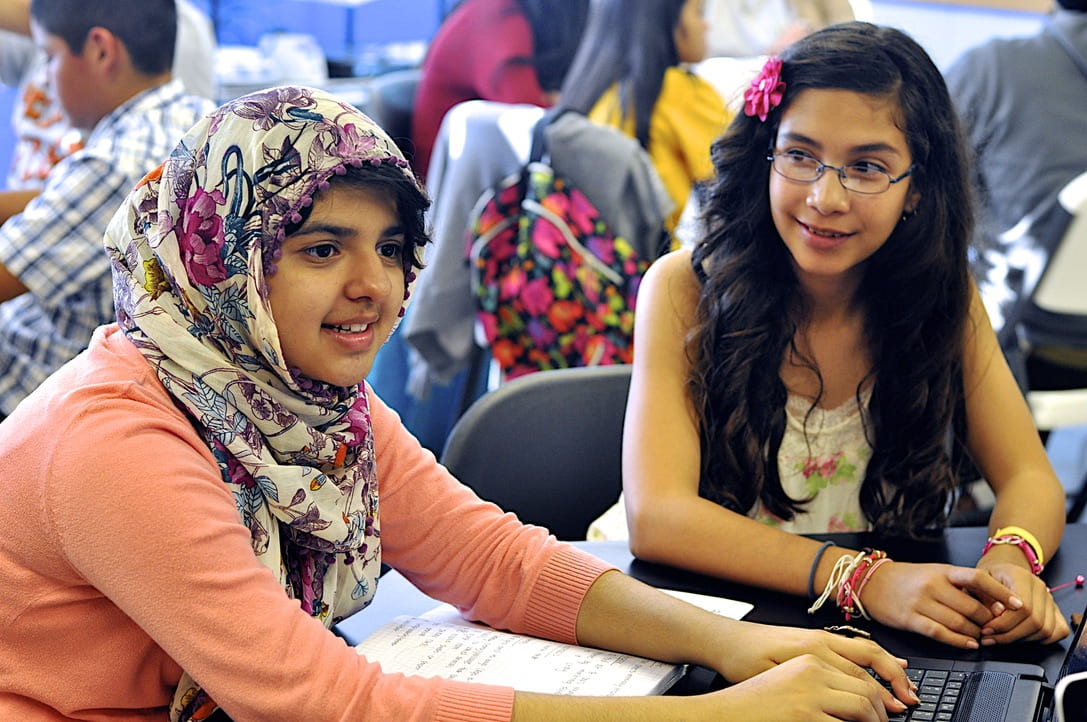What We do
SiS addresses authentic problems of practice identified by community partners
Our goals
1. Respond to community-based STEM education needs. “How can we help?” are the four words that guide our work. Our work takes place in the communities we support.
2. Train Northwestern researchers in principles of teaching, mentoring, and community engagement. Our research shows mentors who work with us carry these skills into their professional lives.
3. Close opportunity gaps by connecting underserved students with university scientists and authentic learning experiences.
How are we different?
Science in Society’s approach is grounded in the scholarship of engagement. This framework challenges historically antiquated models of universities generating new knowledge that flows one-way into society.
Instead, SiS develops mutually beneficial, intellectual engagement between university and community. In this way, both university and community play essential roles in advancing knowledge.
This approach leads to sustainable, effective partnerships.
Partnerships Bridging University and Community

Science Club
In 2007, SiS reached out to the Boys & Girls Clubs of Chicago to see how the university could support the Club’s mentoring mission. The Pedersen-McCormick Club in Chicago’s Uptown neighborhood was interested in developing a new STEM mentoring program. Teachers at two local Chicago schools, McCutcheon and Stewart, asked for new science learning programs for their middle school students focused on authentic student-driven experimentation. SiS partnered with both groups to develop Science Club – a novel, long-term mentoring program pairing students with STEM graduate student and postdoctoral mentors. The program has received more than $5 million in extramural funding.

ESTELE: Elementary Science Teacher-Leaders
High-quality science instruction in the elementary grades (K-5) is critical for building foundational reasoning skills, understanding basic scientific concepts, and fostering curiosity about the natural world. Yet, national surveys indicate that K-5 teachers dedicate as little as 45 minutes per week to science curriculum.
Chicago Public Schools STEM leaders asked SiS to develop an in-depth training program tailored specifically for K-5 teachers. ESTELE provides both introductory-level training on effective science pedagogy as well as an advanced pathway for experienced K-5 teachers to become science teacher leaders (STL) and instructional coaches at their schools. Key to this initiative is a summer practicum-based teaching experience for teachers leading a youth summer science camp at a Boys & Girls Clubs of Chicago site. With over 100 teachers trained to date, this program is scaling up across Chicago.
